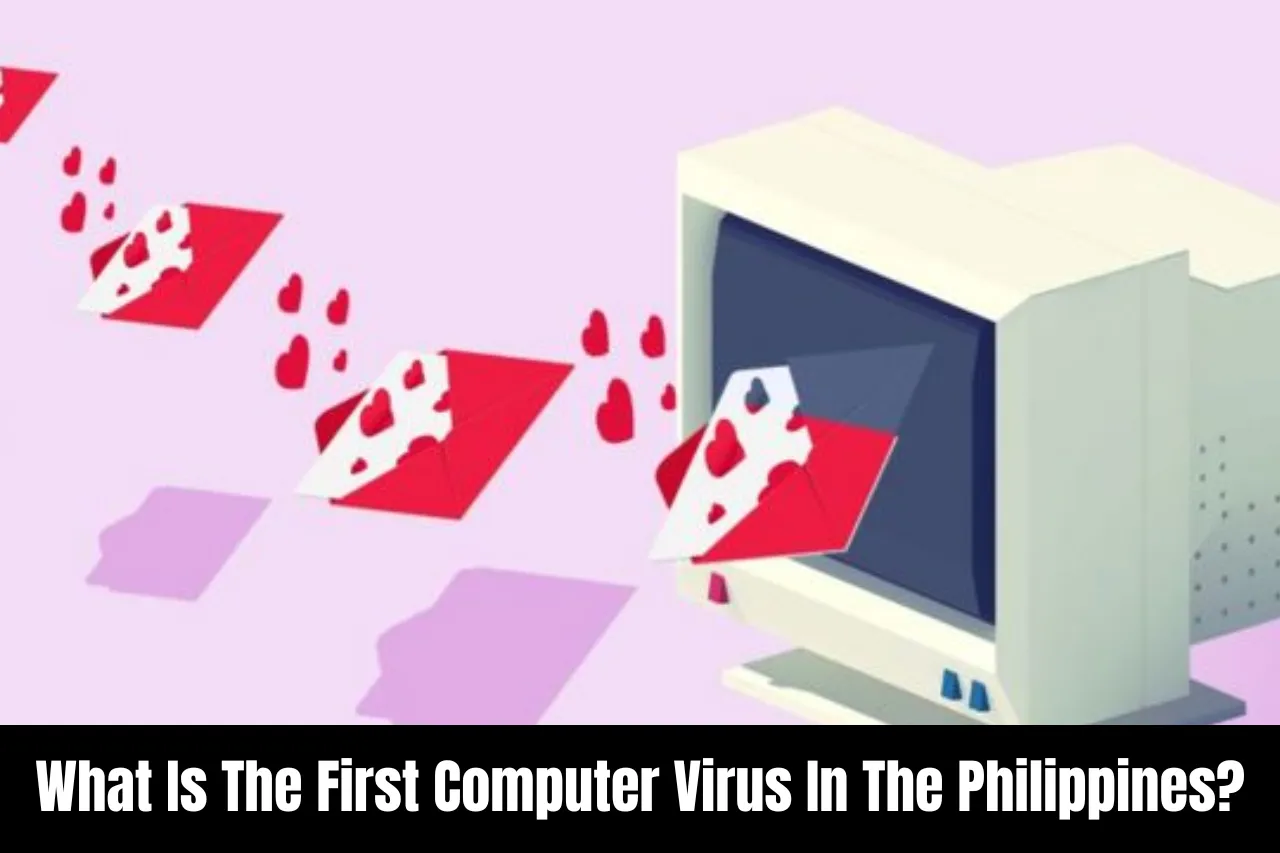Unraveling The Mystery: The First Virus To Emerge In The Philippines
The first virus of the Philippines is the Dengue virus, which was first identified in the country in 1956.
It is a mosquito-borne virus that can cause a range of symptoms, from mild fever and headaches to severe dengue fever, which can be fatal.
The virus is a major public health concern in the Philippines, and the government has implemented a number of measures to control its spread, including mosquito control programs and public education campaigns.
Despite these efforts, the virus continues to circulate in the Philippines, and new cases are reported every year.
What is the First Virus of the Philippines?
The first virus of the Philippines is the Dengue virus, which was first identified in the country in 1956.
- Mosquito-borne
- Can cause a range of symptoms
- Major public health concern
- Government has implemented a number of measures to control its spread
- Continues to circulate in the Philippines
- New cases are reported every year
The Dengue virus is a major public health concern in the Philippines, and the government has implemented a number of measures to control its spread, including mosquito control programs and public education campaigns. Despite these efforts, the virus continues to circulate in the Philippines, and new cases are reported every year.
Mosquito-borne
The Dengue virus is a mosquito-borne virus, which means that it is transmitted to humans through the bite of an infected mosquito. Mosquitoes become infected with the virus when they bite an infected person, and then they can transmit the virus to other people when they bite them.
Mosquitoes are the primary vector for the Dengue virus, and they are responsible for transmitting the virus to humans in the Philippines and other parts of the world. Mosquitoes breed in stagnant water, so it is important to eliminate mosquito breeding grounds around homes and communities to help control the spread of the virus.
There are a number of things that people can do to protect themselves from mosquito bites and reduce their risk of contracting the Dengue virus, including:
- Using mosquito repellent
- Wearing long sleeves and pants
- Using mosquito nets
- Eliminating mosquito breeding grounds
Can cause a range of symptoms
The Dengue virus can cause a range of symptoms, from mild fever and headaches to severe dengue fever, which can be fatal.
The severity of the symptoms depends on a number of factors, including the person's age, health, and immune system. Children and people with weakened immune systems are more likely to develop severe dengue fever.
The most common symptoms of dengue fever include:
- Fever
- Headache
- Muscle and joint pain
- Nausea and vomiting
- Rash
Severe dengue fever can lead to a number of complications, including:
- Dengue hemorrhagic fever
- Dengue shock syndrome
- Organ failure
- Death
There is no specific treatment for dengue fever, but supportive care can help to relieve the symptoms and prevent complications.
Major public health concern
The Dengue virus is a major public health concern in the Philippines. It is a mosquito-borne virus that can cause a range of symptoms, from mild fever and headaches to severe dengue fever, which can be fatal.
- High incidence rate: The Philippines has one of the highest incidence rates of dengue fever in the world. In 2019, there were over 200,000 cases of dengue fever reported in the country.
- Economic burden: Dengue fever is a major economic burden on the Philippines. The cost of treating dengue fever is estimated to be over $100 million per year.
- Strain on healthcare system: Dengue fever can put a strain on the healthcare system, especially during outbreaks. Hospitals may be overwhelmed with patients, and there may be shortages of blood and other medical supplies.
- Social impact: Dengue fever can have a significant social impact. It can lead to school absenteeism and job loss. It can also cause social stigma, as people who have dengue fever may be shunned by their community.
The Dengue virus is a major public health concern in the Philippines, and the government has implemented a number of measures to control its spread. These measures include mosquito control programs, public education campaigns, and research into new vaccines and treatments.
Government has implemented a number of measures to control its spread
The Philippine government has implemented a number of measures to control the spread of the Dengue virus, including mosquito control programs, public education campaigns, and research into new vaccines and treatments.
- Mosquito control programs
The government has implemented a number of mosquito control programs to reduce the population of mosquitoes that can transmit the Dengue virus. These programs include spraying insecticides, removing mosquito breeding grounds, and distributing mosquito nets.
- Public education campaigns
The government has also launched public education campaigns to raise awareness of the Dengue virus and how to prevent its spread. These campaigns include distributing educational materials, running public service announcements, and providing training for healthcare workers.
- Research into new vaccines and treatments
The government is also supporting research into new vaccines and treatments for the Dengue virus. These efforts are important for developing new tools to prevent and treat dengue fever.
These measures have helped to control the spread of the Dengue virus in the Philippines, but more work is still needed to eliminate the virus completely. The government is committed to continuing its efforts to control the spread of the Dengue virus and protect the health of the Filipino people.
Continues to circulate in the Philippines
Despite the government's efforts to control the spread of the Dengue virus, the virus continues to circulate in the Philippines. There are a number of reasons for this, including:
- The Aedes mosquito, which transmits the Dengue virus, is well-adapted to living in the Philippines. The mosquito breeds in stagnant water, and it is found in both urban and rural areas.
- The Philippines has a tropical climate, which is ideal for the Aedes mosquito. The mosquito thrives in warm, humid weather.
- The population of the Philippines is growing rapidly. As the population grows, so does the number of people who are at risk of contracting the Dengue virus.
- The Philippines is a popular tourist destination. Tourists can bring the Dengue virus into the country, and they can also spread the virus to other countries when they return home.
The continued circulation of the Dengue virus in the Philippines is a major public health concern. The government is working to control the spread of the virus, but more work is still needed. The public can also help to control the spread of the virus by taking steps to prevent mosquito bites and by eliminating mosquito breeding grounds.
New cases are reported every year
The Dengue virus is the first virus of the Philippines, and it continues to circulate in the country today. New cases are reported every year, and the virus is a major public health concern.
- The virus is transmitted by mosquitoes, which are found in both urban and rural areas.
- The Philippines has a tropical climate, which is ideal for the mosquitoes that transmit the virus.
- The population of the Philippines is growing rapidly, which means that more people are at risk of contracting the virus.
- The Philippines is a popular tourist destination, which can contribute to the spread of the virus.
There are a number of things that can be done to control the spread of the Dengue virus, including mosquito control programs, public education campaigns, and research into new vaccines and treatments. However, new cases continue to be reported every year, and the virus remains a major public health concern in the Philippines.
FAQs about the First Virus of the Philippines
The Dengue virus was first identified in the Philippines in 1956, and it remains a major public health concern in the country today. Here are some frequently asked questions about the Dengue virus:
Question 1: What is the Dengue virus?
The Dengue virus is a mosquito-borne virus that can cause a range of symptoms, from mild fever and headaches to severe dengue fever, which can be fatal.
Question 2: How is the Dengue virus transmitted?
The Dengue virus is transmitted through the bite of an infected mosquito.
Question 3: What are the symptoms of Dengue fever?
The most common symptoms of Dengue fever include fever, headache, muscle and joint pain, nausea and vomiting, and rash.
Question 4: How is Dengue fever treated?
There is no specific treatment for Dengue fever, but supportive care can help to relieve the symptoms and prevent complications.
Question 5: How can I prevent Dengue fever?
There are a number of things you can do to prevent Dengue fever, including using mosquito repellent, wearing long sleeves and pants, using mosquito nets, and eliminating mosquito breeding grounds.
Question 6: What is the outlook for Dengue fever?
The outlook for Dengue fever depends on the severity of the infection. Mild cases of Dengue fever usually resolve within a few days, while severe cases can be fatal.
Summary: The Dengue virus is a major public health concern in the Philippines. It is important to be aware of the symptoms of Dengue fever and to take steps to prevent mosquito bites. If you think you may have Dengue fever, it is important to see a doctor right away.
Transition to the next article section: For more information about the Dengue virus, please visit the website of the Department of Health.
Conclusion
The Dengue virus is the first virus of the Philippines, and it continues to be a major public health concern in the country today. The virus is transmitted by mosquitoes, and it can cause a range of symptoms, from mild fever and headaches to severe dengue fever, which can be fatal.
There is no specific treatment for Dengue fever, but supportive care can help to relieve the symptoms and prevent complications. The best way to prevent Dengue fever is to avoid mosquito bites. This can be done by using mosquito repellent, wearing long sleeves and pants, using mosquito nets, and eliminating mosquito breeding grounds.



Detail Author:
- Name : Kavon Mante
- Username : schumm.kathryne
- Email : unienow@roob.net
- Birthdate : 2000-08-13
- Address : 22251 Jay Brooks Edwardomouth, TN 71838-9620
- Phone : +1-262-487-6793
- Company : Predovic-Schinner
- Job : Architect
- Bio : Iste iure quos sunt at mollitia. Laboriosam sapiente alias autem quae voluptates velit odio. Eos sit quam nostrum quasi maiores. Velit ad minima et nihil veniam sint exercitationem.
Socials
tiktok:
- url : https://tiktok.com/@raynork
- username : raynork
- bio : Aut velit enim temporibus reiciendis fugiat. Et ex quis sunt magni tempore id.
- followers : 5388
- following : 65
instagram:
- url : https://instagram.com/khalid_raynor
- username : khalid_raynor
- bio : Voluptatibus eum sequi fugiat mollitia. Praesentium quia minus dolor est.
- followers : 438
- following : 2012